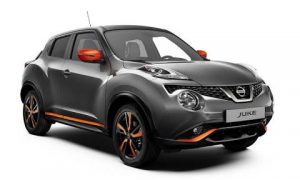In recent years, the automotive industry has undergone a transformative shift towards sustainable and eco-friendly solutions. Among these innovations, hybrid cars have emerged as a compelling bridge between traditional internal combustion engines and the future of electric vehicles (EVs). Let’s explore the world of hybrid cars, delving into their technology, benefits, and the impact they have on the ever-changing landscape of transportation.
The Hybrid Advantage
Hybrid cars, characterized by their dual power sources – typically a gasoline engine and an electric motor – offer a unique blend of fuel efficiency and reduced emissions. This dual power setup allows for optimal performance, utilizing the electric motor for low-speed city driving and the gasoline engine for highway cruising. The seamless transition between these power sources enhances overall fuel economy, making hybrids an attractive option for environmentally conscious consumers.
Types of Hybrid Systems
a. Parallel Hybrids: In this configuration, both the internal combustion engine and the electric motor are connected to the vehicle’s transmission, allowing them to work together or independently.
b. Series Hybrids: The electric motor is the primary source of power, with the gasoline engine acting as a generator to recharge the battery and extend the vehicle’s range.
c. Plug-in Hybrids (PHEVs): These hybrids can be charged using an external power source, providing an extended all-electric driving range before relying on the internal combustion engine.
Environmental Impact
One of the most significant advantages of hybrid cars is their reduced environmental footprint. By relying on electric power during low-speed, stop-and-go driving, hybrids contribute to lower emissions and decreased fuel consumption. This eco-friendly approach aligns with the global push towards sustainability and the reduction of greenhouse gas emissions.
Financial Incentives
Many governments around the world offer financial incentives to promote the adoption of hybrid vehicles. These incentives may include tax credits, rebates, or other perks that make hybrid cars an appealing choice for budget-conscious consumers.
Challenges and Future Prospects
While hybrid cars have gained widespread acceptance, challenges such as the environmental impact of manufacturing batteries and the need for charging infrastructure persist. However, ongoing advancements in battery technology and a growing commitment to green initiatives within the automotive industry point towards a promising future for hybrids.
In conclusion, hybrid cars represent a pivotal step towards a more sustainable and energy-efficient automotive future. As technology continues to evolve, the line between hybrid and fully electric vehicles will blur, and the roads will be populated with increasingly eco-conscious transportation solutions. Embracing the road ahead means embracing the evolution of hybrid cars as a crucial element in the ongoing journey towards a greener and more sustainable tomorrow
















